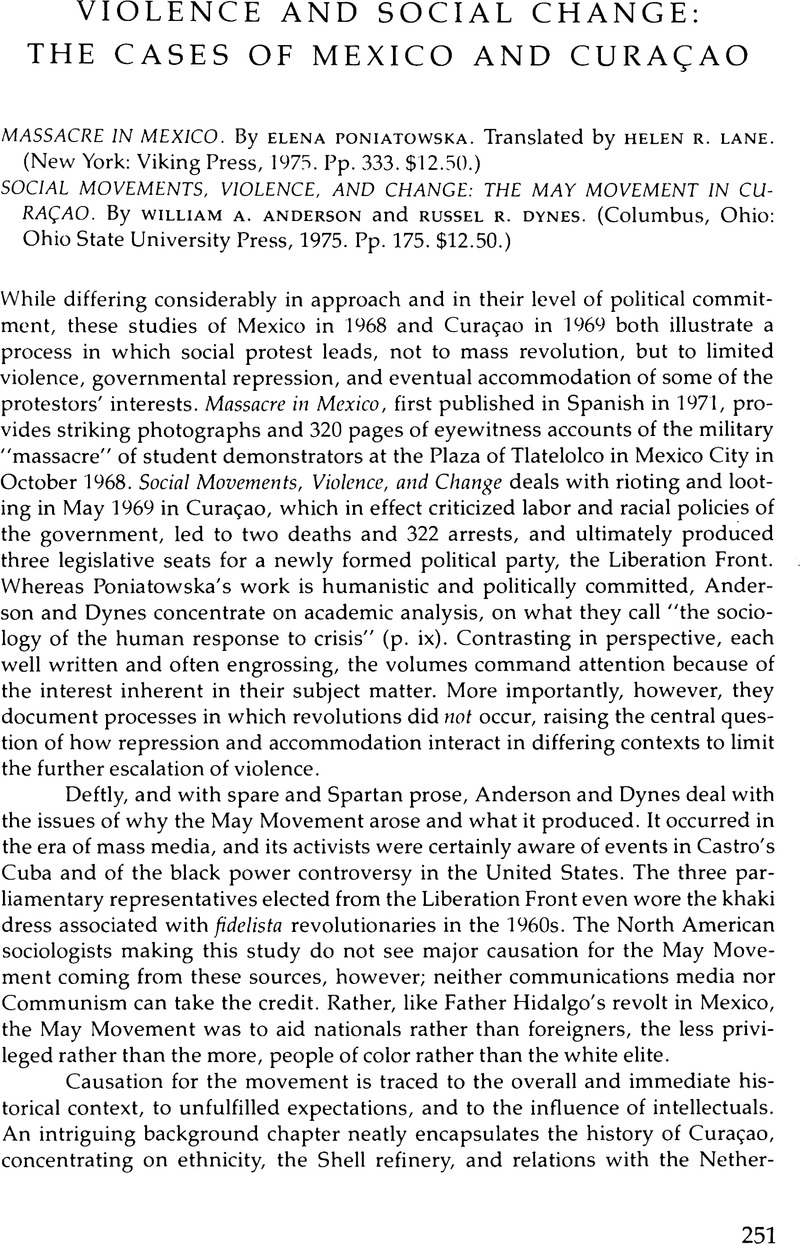No CrossRef data available.
Published online by Cambridge University Press: 24 October 2022

1. See Lorenzo Meyer, “Desarrollo político y dependencia externa: México en el siglo XX,” in William P. Glade and Stanley R. Ross, eds., Críticas constructivas del sistema político mexicano (Austin, Texas: Institute of Latin American Studies, University of Texas at Austin, 1973). Meyer finds great continuity in Mexican politics, not only in external dependence on the United States but also in terms of Juan Linz's model of authoritarianism as “the institutionalization of a limited pluralism” (p. 13).
2. A report of the survey can be found in Juan Manuel Cañibe, “El movimiento estudiantil y la opinión pública,” Revista Mexicana de Ciencia Política, Año 16, Núm. 59 (enero-marzo 1970).
3. Richard J. Walter, Student Politics in Argentina: The University Reform and Its Effects, 1918–1964 (New York: Basic Books, 1968), pp. 56–57.
4. After the enthronement of Charles II, whose tutor he had been, Hobbes looked back on the execution of Charles I and wrote, “Our late King, the best King perhaps that ever was, you know, was murdered, having been first persecuted by war, at the incitement of Presbyterian ministers; who are therefore guilty of the death of all that fell in that war; which were, I believe, in England, Scotland, and Ireland, near 100,000 persons. Had it not been much better that those seditious ministers, which were not perhaps 1000, had been all killed before they had preached?” Thomas Hobbes, Behemoth, or the Long Parliament, ed. by Ferdinand Tönnies (2d ed., New York: Barnes & Noble, 1969), p. 95.